Before the Rural Dialogues came to Stevens County, residents were already noticing weather changes like warmer winters, more precipitation, and stronger storms. In a community like Stevens County, these changes pose threats to the local economy and the quality of life of residents.
In June of 2014, we convened 15 members of the community to learn more about the weather they were witnessing daily, the long term impact these changes would have, and community actions they could take to help address these risks. Since then, Stevens County has built resilience through incredible partnerships, individual actions and community programs!
Download community recommendations from the 2014 Stevens County Climate Dialogue
We returned in December 2017 to help residents learn about the basics of the energy system, discuss energy goals, and brainstorm ways to achieve their goals. Then in February 2018, community members met again to help turn their energy priorities and ideas into action.
Download community recommendations from the 2017-2018 local energy forums
Below, you’ll find the events, programs, and initiatives that have made Stevens County a leading example of rural communities adapting to extreme weather and the changing climate:
Extreme Weather in Stevens County
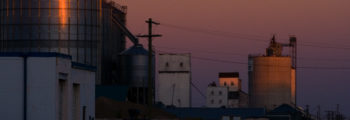
Residents in Stevens County are experiencing warmer winters, greater precipitation, and more severe storms. Average temperatures have been increasing, particularly due to warmer winters and higher minimum temperatures. The trend shows more precipitation overall, falling in more intense events. Stevens County has also experienced more frequent periods with “tropical-like” dew points, increasing humidity and Heat Index values.
Morris High School climate research
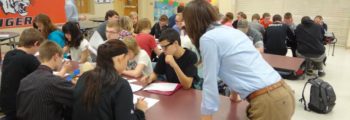
Students at Morris Area High School heard from University of Minnesota climatologist Mark Seeley and other experts about climate impacts in the community, and disseminated surveys to their families and neighbors to create a map of Morris’ energy use patterns and gauge interest in renewable energy solutions.
Morris Area Climate Dialogue
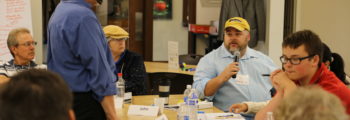
June 12-14, 2014: Fifteen randomly-selected Morris residents met to assess local impacts of extreme weather and climate patterns, identify community concerns and opportunities to address those concerns, and recommend steps to address risks and build resilience through community action. To see all the community recommendations, download the full report.
Creation of the Morris Model
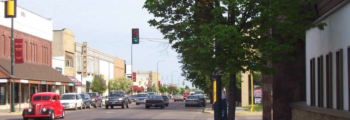
A collaboration between the City of Morris, Stevens County, West Central Research and Outreach Center, Office of Sustainability, Center for Small Towns was launched to encourage energy conservation, renewable energy, and community resilience.
Extreme Weather Action Meeting (EWAM) launched
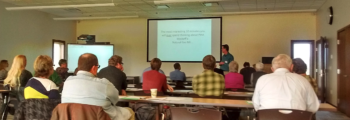
Modeled on the rural climate dialogues, residents, local government leaders, and businesses owners discussed sustainable practices that businesses and community members can take to prepare for extreme weather events.
Energy efficient light bulbs installed

The City of Morris replaced city owned lights with LEDs, which increases energy efficiency and saves money!
Partnership with Saerbeck, Germany
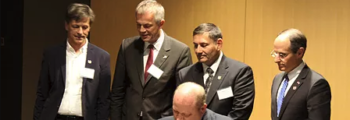
As part of the Morris Model, the Morris City Council signed a sister city, climate protection, and technical assistance agreement with Saerbeck, Germany to explore the development of clean energy. Since the partnership was created, representatives from both cities have traveled back and forth to collaborate on climate change adaptation projects.
Climate change curriculum in public schools

The Morris Area High School incorporated climate change into its curriculum.
Chasing Ice screening

Community churches, student groups, and area leadership development programs hosted a community education event in April 2015 featuring a screening of the film “Chasing Ice”, an award-winning documentary about photographer James Balog and his quest to show the impact of climate change on the world’s glaciers.
Morris wins an Environmental Initiative Community Action award
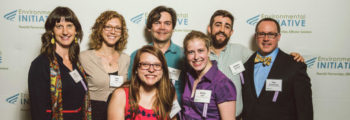
Morris was recognized for their work with the Jefferson Center, Institute for Agriculture and Trade Policy, the city of Morris, the Morris Area High School Future Farmers of America, and Federated Church on a project called Morris Engaged: Planning and Action for Climate Resilience, which expanded community-based efforts to address local climate and extreme weather impacts.
Rural Climate Dialogues State Convening

To identify common themes across the three Rural Climate Dialogues communities, we invited participants and community members from Stevens, Itasca, and Winona counties to discuss the work each community has done and meet with state agency representatives to identify action plans. Participants created a set of top priorities, actions, and potential obstacles to support resilience in Minnesota’s rural communities.
Morris is recognized as a Minnesota Clean Energy Community

Morris received the Minnesota Clean Energy Community award from the Department of Commerce for working with partners to incorporate clean energy and conservation goals into overall community planning.
Electric vehicles come to Morris
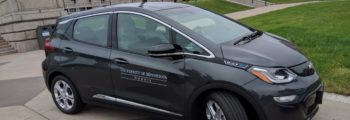
The University of Minnesota Morris purchased an electric vehicle and is currently installing a charging station on campus.
Morris wins the 2017 Minnesota Climate Adaptation Award
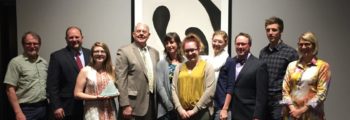
The University of Minnesota, Morris won the 2017 Minnesota Climate Adaptation Award by the Minnesota Climate Adaptation Partnership (MCAP), which recognizes their work to advance awareness of climate adaptation in Minnesota with the help of student, state, and community partnerships
Local Government Innovation Award
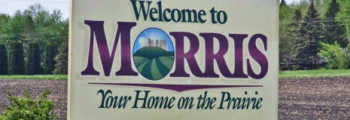
The Morris Model won a “Local Government Innovation Awards” from the Humphrey School of Public Affairs in December 2017.
Our Energy Future: Stevens County
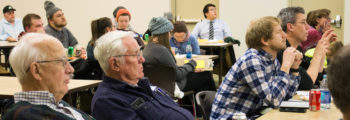
On December 6, 2017, the Institute for Agriculture and Trade Policy and the Jefferson Center returned to Morris to help community members learn about the basics of the energy system, discuss energy goals, and brainstorm ways to achieve their goals. Check out the complete list of what they’re excited for, their top concerns, and what they want the community energy system to look like in 10 years.
Looking towards the future
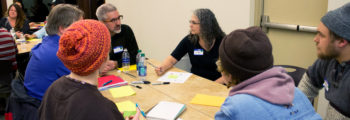
What do Stevens County residents want their energy system to look like in 10 years?
- Locally-focused and affordable
- Efficient and electrified transportation
- Increased local renewable energy
- Improved grid/storage
- Improved efficiency
- Increased energy understanding
Our Energy Future: Ideas to Action
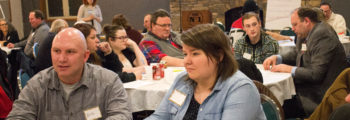
On February 28, Stevens County residents explored their remaining community energy questions and ideas for the future, and mapped out a plan to make community energy goals reality. Energy efficiency & behavior change and district heating were ranked as top priorities by the participants.


